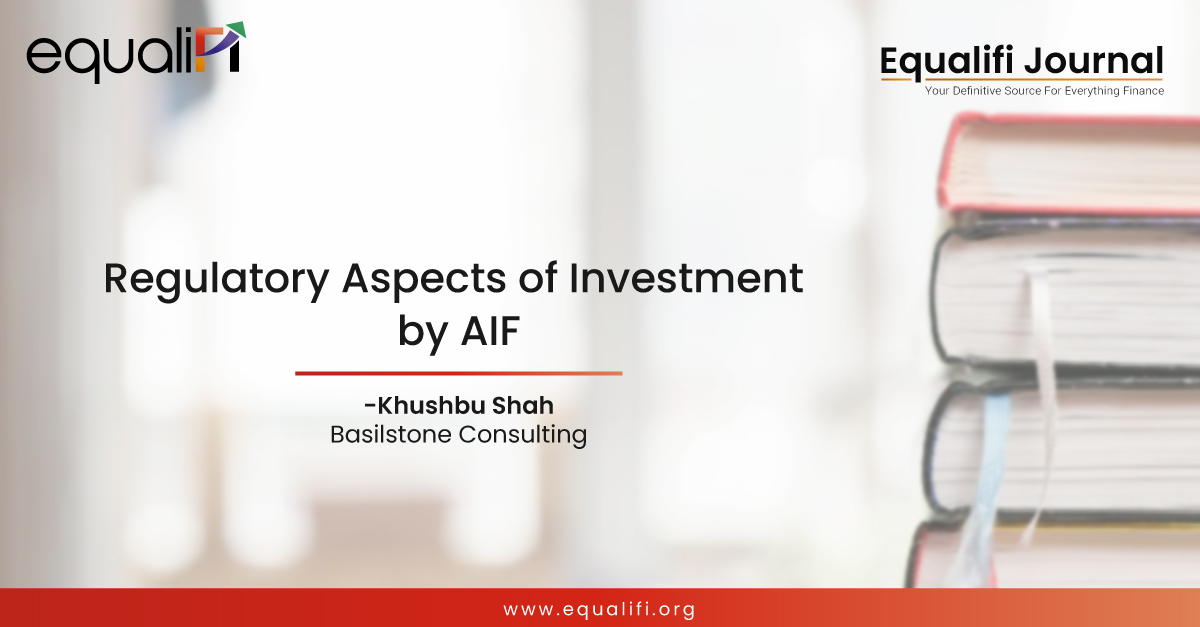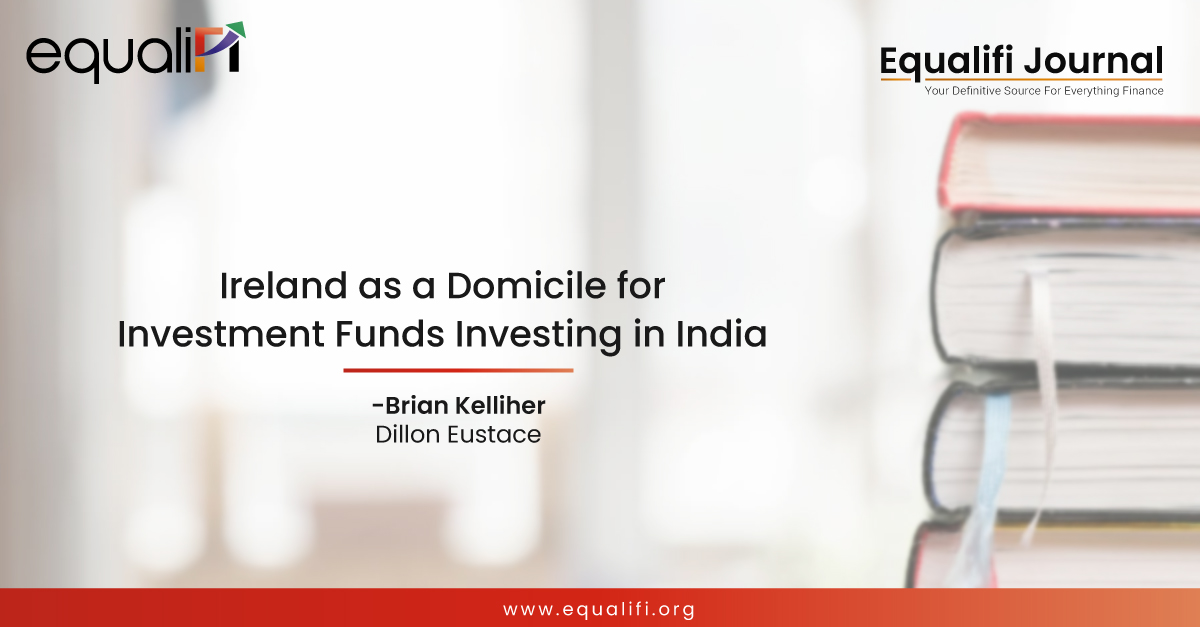Is ESG The Next Milestone For Fund Managers?
Posted on: November 1, 2021 | By: Divaspati Singh- Partner, Khaitan & Co & Aditya Tandon- Associate, Khaitan & Co
While Environment, Social and Governance (ESG) as an investing guideline has existed for several years, it has been predominantly driven by large development financial institutions and institutional investors as a part of their larger developmental goals rather than being a focussed investment strategy. The coronavirus pandemic has really changed the paradigm around ESG, wherein on one side, there is now a deeper emphasis on sustainability, while on the other side, the perception around ESG investing being equated with muted returns has also been shattered.
A study conducted by Morningstar found that 73% of its ESG indices had overperformed their non-ESG counterparts since inception.1Fidelity International’s research found that listed stocks with higher ESG ratings performed better than those with lower ESG ratings in the first nine months of 20202, an indication that ESG compliant entities may be more resilient during periods of economic downturn than ESG non-compliant entities. A similar trend is observed in India as well, with the MSCI India ESG Leader Index and the Nifty 100 ESG Sector Leaders Index consistently outperforming their non-ESG counterparts over the last 5-10 years. The record capital inflows into ESG focussed funds during the coronavirus pandemic despite net outflows in the overall global funds universe is a great indicator of the positive change in investor sentiment towards ESG investing.
While Europe and USA have been the pioneers of embracing ESG principles into their investment processes even in the pre-covid era, the emphasis on ESG has gradually increased in the rest of the world and perhaps accelerated due to the pandemic. The alternative assets space has seen more than 4,000 ESG committed private fund closings globally since 2011 which have raised more than USD 3 trillion.3India has also recently witnessed increased investments in ESG funds along with the launch of multiple ESG funds by fund managers including Aditya Birla, SBI, Kotak, etc., in the mutual fund space. Private equity players like Avendus, Everstone, etc., have also launched ESG funds that have raised significant amounts of capital. In financial year (FY) 2020-21, ESG funds in India saw an inflow of INR 3,686 crore, an increase of 76% from the preceding financial year.4 The cumulative assets under management (AUM) of ESG funds in India has also increased by four times since 2019 and stood at INR 11,800 crore in June 2021.5
Role of institutional investors
Institutional investors have been the driving force behind the accelerated growth of ESG investing recently with many prominent institutional investors committing to invest in ESG compliant entities and integrating ESG considerations in their investment processes. While it is well known that incidents such as corporate frauds, environmental damage, etc., have a negative impact on a company’s reputation, revenues (especially considering the huge penalties imposed on companies in such cases) and valuation, leading to a loss of investor confidence in the company, institutional investors are increasingly acknowledging that ESG compliance is likely to mitigate such risks and thereby preserve and increase the value of companies over the long term as well as improve their ability to withstand social and economic shocks. ESG compliance has now become a material aspect of their due diligence
1. Dan Levkovitz, ESG Investing Performance Analyzed, Morningstar, 12 March 2019.
2. Putting sustainability to the test: ESG outperformance amid volatility, Fidelity White Paper, November 2020.
3. Preqin Impact Report: The Rise of ESG in Alternative Assets, November 2020.
4. Inflows of sustainable funds surge 76% to Rs 3,686 cr in FY21, The Economic Times, 22 April 2021. 5India ESG funds AUM expands 4 times to Rs 11,800 crore in two years, Livemint, 21 August 2021.
process and therefore they are seeking more comprehensive ESG related disclosures to understand and assess the implementation of ESG policies by companies prior to making investments.
Institutional investors are also demanding that fund managers integrate ESG considerations into their investment strategies and due diligence processes and offer them investment opportunities that are ESG compliant. As a response to the increased investor demand for ESG compliant investment opportunities, fund managers are launching specialized products in the form of ESG focussed funds with an objective to invest only in ESG compliant entities. We are also seeing a trend of fund managers increasingly adopting ESG policies and recalibrating existing portfolios / constructing portfolios consisting of ESG compliant entities. A recent survey conducted by Preqin found that investor demand is one of the primary reasons for fund managers adopting ESG policies. Global firms like Blackstone Group, Apollo Management Group and Carlyle Group have already imposed ESG mandates across their funds and we expect this trend to continue, with investors increasingly demanding that fund managers construct ESG compliant portfolios.
Challenges for fund managers
While the increasing demand for ESG investing is encouraging, fund managers may broadly face two challenges:
- At the time of raising capital: In the absence of any globally accepted standard for ESG, fund managers are likely to face a dilemma in deciding the most appropriate ESG standards that the funds managed by them should adhere to. Each institutional investor would also have their own set of ESG standards that they follow and consider as the most appropriate. While the essence of each ESG standard may be similar, it may be a challenging process for fund managers to get everyone on the same page so far as ESG standards applicable to the fund are concerned. Further, these standards may also need to be modified to align them with the overall investment thesis of the fund manager. For example, a buyout fund may have a higher flexibility of enforcing these standards as compared to a credit or a distressed fund. Further, the nature of the acquisition (whether it is a primary or a secondary acquisition) may also require adjustments to the extent of how the set standards would apply.
- At the time of making investments: In the absence of standardized reporting and disclosure requirements in relation to ESG compliance, fund managers are expected to face challenges in determining whether an entity is really ESG compliant or not. An entity may represent that it is ESG compliant on account of it adopting ESG policies but in reality, the execution of such policies may be lacking. Further, disclosures on ESG compliance may not reflect the true extent of such compliance. Moreover, disclosures by companies, if made, may be based on different parameters which may not be easily comparable with their peers. We expect this to increase the burden on fund managers who will have to remodel their investment and due diligence processes in order to successfully be able to identify entities that are actually ESG compliant and to ensure that the ESG focussed funds managed by them do not invest in ESG non-compliant entities.
Role of market regulators
While the lack of standardized metrics for determining ESG compliance is understandable due to global ESG investing still being at a nascent stage, market regulators across the world are constantly endeavouring to improve the quality of reporting and disclosures on ESG by
corporates and fund managers. UK’s Financial Reporting Council has mandated UK’s asset managers to make periodic disclosures of how they have taken ESG considerations into account while dealing with their investee companies as well as their voting records on ESG related issues and rationale behind their decisions, as part of their stewardship responsibilities under the UK Stewardship Code 2020. The Singapore as well as Hong Kong stock exchanges
have recently introduced ESG focussed listing and reporting requirements. On the home front, the Securities and Exchange Board of India (SEBI) has introduced a stewardship code requiring institutional investors, including alternative investment funds and mutual funds, to monitor and engage with their listed investee entities on matters like material ESG opportunities and risks and actively intervene on concerns such as ESG risks, as a part of their stewardship responsibilities towards their clients / beneficiaries. Further, SEBI has notified guidelines for issuance of green debt securities in 2017 that mandate issuers to disclose details of their decision-making process for determining eligibility of projects in their offer documents, have systems and procedures in place for tracking the deployment of issue proceeds and have also set out periodic disclosure and reporting requirements post issuance. SEBI has recently also mandated the top one thousand listed companies by market capitalization in India to publish a Business Responsibility and Sustainability Report, annually, mandatorily from FY 2022-23, that would include specific ESG related disclosures about the company. This would ensure that investors and fund managers have access to a standardized set of ESG related disclosures, including ESG opportunities and risks of each company, in a form that is comparable with their peers and would enable them to assess and make better investment decisions.
Conclusion
This trend towards ESG investing has resulted in the elevation of ESG from a secondary agenda item to an important point of discussion in board meetings of companies. With institutional investors insisting on ESG compliance as a mandatory condition for making investments, companies have been compelled to take ESG compliance seriously and integrate ESG policies into their operations or risk being excluded from opportunities of receiving capital.
Based on recent trends, it would be safe to conclude that ESG cannot be ignored any more. We expect the volume of ESG investments to rise exponentially in the next few years and likewise for capital allocation towards ESG funds. According to Bloomberg’s estimates, global ESG assets will exceed USD 53 trillion by 2025 and represent one-third of the projected total AUM of all assets. Though ESG adoption may theoretically continue to remain an “option” for companies and fund managers, however, we expect it to practically become a “requirement” in the long term.
The rising demand for ESG compliant investment opportunities has provided a great opportunity for fund managers to launch more ESG focussed assets which are likely to offer better returns. From a fund manager’s perspective, ESG is definitely the next milestone!








